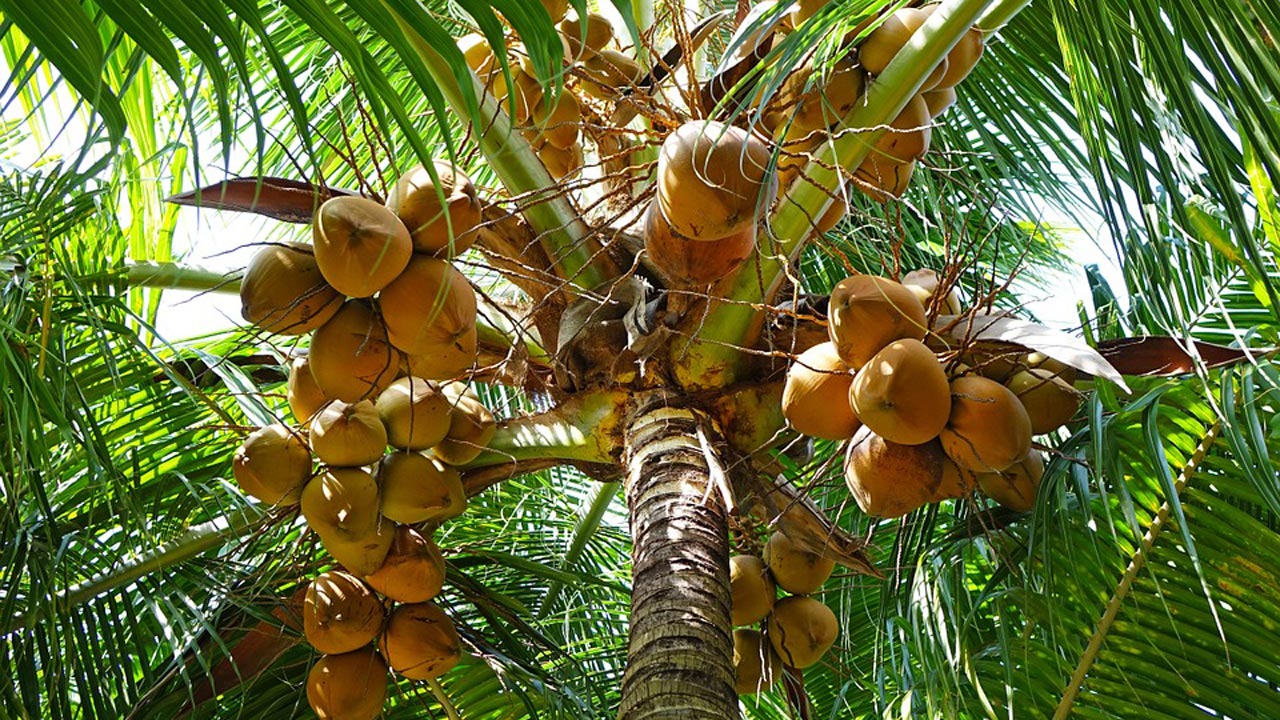Exploring the Coconut Trees of Badagry, Lagos

By Yemi Olakitan
Nestled along the picturesque coastline of Lagos, the historic town of Badagry is known for its rich cultural heritage, stunning beaches, and, most notably, its magnificent coconut trees.
These towering symbols of nature’s beauty have not only adorned the landscape for centuries but have also played a vital role in the lives of the locals, contributing to their economy and sustenance,.also providing environmental protection against global warming and climate change.
Badagry’s location on the Atlantic Ocean makes it an ideal environment for the growth of coconut trees. The town’s sandy soil, combined with the warm and humid climate, provides the perfect conditions for these majestic palms to thrive.
The coconut trees dotting the landscape create a tropical paradise, with their swaying fronds and the soothing sound of rustling leaves.
The coconut tree holds immense economic significance for the people of Badagry. The versatile nature of the tree offers various sources of income and sustenance. The tree’s fruit, the coconut, is not only a delicious tropical treat but also provides a vital source of nutrition and hydration.
The locals consume the sweet water found within the young coconuts, while the mature coconuts are used for cooking, making oil, and creating various coconut-based products.
In an interview with Nature News, the traditional ruler of the ancient city of Okoafo, Badagry Local Government, Baale Musibau Okunade, he said, “the coconut trees plays a crucial role in the local economy of the people of Badagry. It is part of the culture of the people of Badagry.The abundance of coconut trees in Badagry has also given rise to agric industries such as coconut farming, coconut oil production, and handicrafts made from coconut shells and husks. These industries provide employment opportunities for many residents, contributing to the town’s overall growth.”
Speaking further, Chief Okunade said, “the coconut trees hold deep cultural significance and is an integral part of the traditions and rituals of the Badagry community. In local folklore and mythology, the coconut tree is often associated with prosperity, fertility, and spiritual protection. It is also used during traditional ceremonies and festivals, where its leaves and branches are woven into intricate decorations and used as offerings to the gods.”
He opined that, “the coconut trees of Badagry not only provide economic and cultural value but also serve as a major attraction for tourists. Visitors are captivated by the sheer beauty and tranquility offered by the coconut groves. The sight of the tall palms swaying gently in the ocean breeze, against the backdrop of pristine beaches, creates a breathtaking experience for all.” He spoke.
“Tourists can also engage in activities such as coconut harvesting, where they can learn about the various uses of coconuts and try their hand at climbing the trees. Additionally, coconut-based products, such as handmade crafts and organic coconut oil, are popular souvenirs that tourists can take home, serving as a reminder of their time in Badagry.”
Speaking in what should be done to preserve and sustain the coconut culture of the Badagry people and address some of the challenges in the Coconut value chain. Chief Okunade said, “the coconut trees of Badagry continue to enchant locals and visitors alike, it is crucial for the Lagos State Government to focus on their preservation and sustainability. Environmental awareness and responsible cultivation practices are vital to ensure the long-term survival of these magnificent trees. Measures should be taken to protect the coastal ecosystem, including the proper disposal of coconut waste and the promotion of sustainable farming techniques.”
In another chat with a native of Badagry, Mr Sunday Oludayo, he said the Badagry people appreciate the Coconut trees so much that they oganise the
AGUNKEFEST coconut festival with planting of seedlings all over Badagry.
According to him, this festival is usually organized by the African Coconut Heritage Initiative (AGUNKEFEST) and it’s usually marked with Coconut planting at Schools and other places in Badagry.
Speaking further, Oludayo said, “The festival is normally held in November, inculcating the idea of saving the environment and also giving the people of Badagry economic power because in some years’ time, the coconut they plant during the festival will produce fruits.
It is as result of both the economic and environmental value of the Coconut trees that the Lagos State Coconut Development Authority,early this year, embarked on a mission to plant coconut trees in all established housing estates across Lagos State.
The plan, which is in collaboration with the Lagos State Ministry of Housing, is part of efforts to improve and promote the coconut economy in Lagos.
According to the state government, LASCODA Akorede Adeboye, the state plans to plant 10 million coconut trees under the Coconut Renewal Initiative.
He said, “Out of the 10 million, two million are to be planted in the peri-urban and urban areas, such as housing estates. Aside the economic benefits of planting coconut trees in urban areas such as within the housing estates, there are also significant environmental benefits such as carbon sequestration, improved air quality, soil conservation, and beautification of the landscape and providing shade among others.”
The Permanent Secretary, Mr Kamar Olowoshago, expressed the ministry’s willingness to collaborate with LASCODA to ensure its success.
Olowoshago promised that the ministry would immediately embark on the thematic assessment of all the housing estates in the state to determine where coconut trees can be planted.
